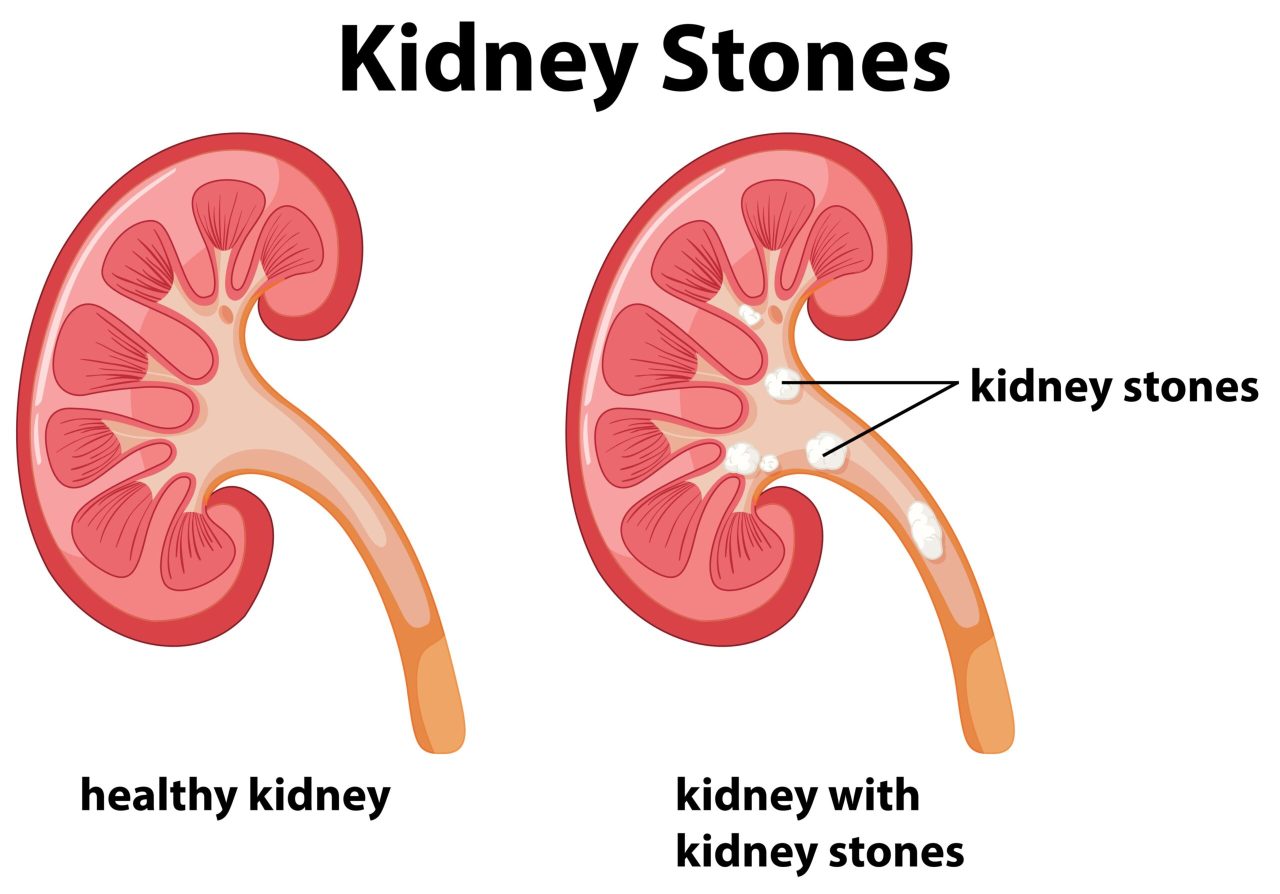A well-balanced and thoughtful diet is crucial for preventing the formation of various types of stones, such as kidney stones, bladder stones, or gallstones. The following dietary recommendations can help reduce the risk of stone formation and promote overall urinary and digestive health:
Hydration: Adequate fluid intake is essential for preventing stone formation. Drinking plenty of water helps dilute urine, making it less conducive to the formation of crystals that can lead to stone development. Individuals should aim to consume at least 8-10 glasses of water per day, or more if recommended by a healthcare professional based on individual needs and activity level.
Calcium: Contrary to popular belief, a diet low in calcium can actually increase the risk of developing kidney stones. Incorporating adequate calcium from dietary sources, such as low-fat dairy products, leafy green vegetables, and fortified plant-based milks, helps bind oxalate in the intestines, preventing it from being absorbed and excreted in the urine.
Sodium: Limiting sodium intake is important for stone prevention. Excessive sodium can lead to increased calcium levels in the urine, which can contribute to the formation of calcium-based stones. Processed foods, fast foods, and table salt should be consumed in moderation, and attention should be paid to food labels to track sodium content.
Oxalate: For individuals prone to calcium oxalate stones, it may be beneficial to moderate the consumption of high-oxalate foods, such as spinach, rhubarb, beets, nuts, and certain teas. However, it’s important to note that the impact of dietary oxalate on stone formation varies among individuals, and not all high-oxalate foods need to be strictly avoided.
Protein: Consuming moderate amounts of high-quality protein from sources such as lean meats, poultry, fish, eggs, and legumes is recommended. However, excessive intake of animal protein, particularly red meat, may increase the risk of uric acid and calcium oxalate stone formation. Balancing protein intake with other essential nutrients is crucial.
Fruits and Vegetables: A diet rich in fruits and vegetables, which are high in fiber, vitamins, and minerals, is beneficial for overall health and may help prevent stone formation. However, individuals with a history of certain types of stones, such as those composed of uric acid or cystine, should be mindful of specific fruit and vegetable choices.
Acidic Foods: Some studies suggest that consuming foods high in citric acid, such as lemon and lime juice, may help prevent the formation of certain types of stones, like calcium oxalate and uric acid stones. Adding a splash of citrus to water or incorporating it into meals can be a beneficial dietary addition for stone prevention.
It’s important for individuals to work with a healthcare professional or a registered dietitian to develop a personalized dietary plan based on their specific medical history, stone composition (if known), and nutritional needs. Additionally, maintaining a healthy weight, engaging in regular physical activity, and avoiding excessive alcohol consumption are important lifestyle factors that contribute to overall stone prevention and well-being.

